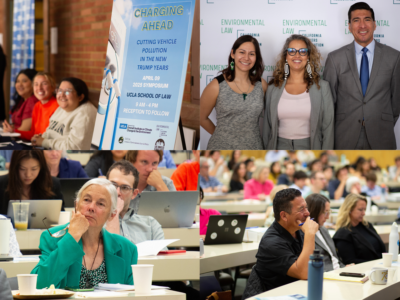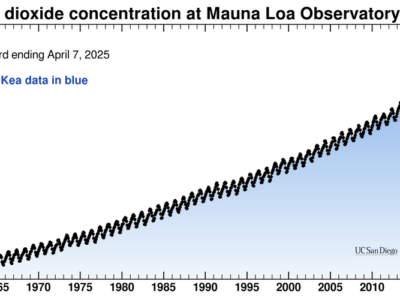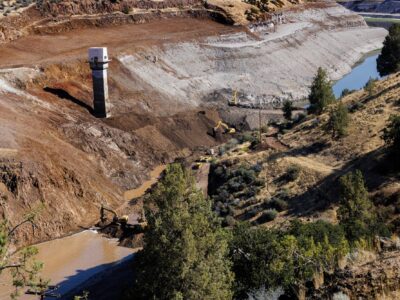Academia
The Quiet Erosion of Federal Legal Internships
Guest Contributor Emma Rose Shore, a UCLA Law student, reflects on the current administration’s attack on civil servants and the cancellation of summer internships.
One morning last October, I got really exciting news. After an interview with a senior attorney at the Environmental Protection Agency’s Office of Enforcement and Compliance, I was offered a position in the National Environmental Training Institute’s Summer Honors Program (NETI). My giddiness must have been obvious, because the interviewer asked if I wanted to …
Continue reading “The Quiet Erosion of Federal Legal Internships “
CONTINUE READINGHere’s How the Palisades and Altadena Can Rebuild Better
In partnership with UCLA, the Blue Ribbon Commission on Climate Action and Fire-Safe Recovery has released its final recommendations.
The January 2025 Los Angeles fires were one of the most expensive climate disasters in our country’s history. They displaced tight-knit communities, took lives, shook our region to its core, and reminded us that as the climate continues to change, the risk of future disaster looms large. This recognition lead County Supervisor Lindsey Horvath to …
Continue reading “Here’s How the Palisades and Altadena Can Rebuild Better”
CONTINUE READINGWorthwhile Canadian Initiative! Really!
McGill University’s Sustainability Academic Network provides a useful — and potentially crucial — new platform.
About a week ago I got an email from McGill University’s Juan Serpa, asking me to join a new platform — the Sustainability Academic Network (SUSAN) — that contains literally thousands of datasets, academic papers, conferences, jobs, grants, local events, and institutes all devoted to sustainability. Great. Happy to do it (especially since they found …
Continue reading “Worthwhile Canadian Initiative! Really!”
CONTINUE READING“What We Do Matters:” UCLA’s Charging Ahead Symposium
States and cities have a lot of tools to cut vehicle pollution. It’s time to break them out.
Trump is a bump. A nasty one, but a bump nonetheless, because the world is on the road to zero-emission fuels and vehicles no matter what. That was one takeaway from “Charging Ahead,” the UCLA Emmett Institute’s annual symposium held on April 9 — devoted this year to cutting vehicle pollution during the next four …
Continue reading ““What We Do Matters:” UCLA’s Charging Ahead Symposium”
CONTINUE READINGTouched by the Keeling Curve
Teaching the Keeling Curve in International Environmental Law has me reflecting on the role of climate science then and now.
Teaching the climate change unit last week in my International Environmental Law and Policy class, I found myself so moved that I started crying at the board. My poor students thought I was in distress. I was simply telling the story of the Keeling Curve. That’s a daily record of global atmospheric carbon dioxide concentration devised by …
Continue reading “Touched by the Keeling Curve”
CONTINUE READINGHunting Methane Using Satellites
Joint UC Berkeley – UCLA Law report aims to help policymakers harness the methane data revolution.
A stream of data about methane—a potent greenhouse gas—is now constantly being beamed down from space. New methane satellites provide a powerful data capability for governments who want to demonstrate leadership in climate policy. To equip policymakers with necessary information on satellite methane data, UC Berkeley Law’s Center for Law, Energy and the Environment (CLEE), …
Continue reading “Hunting Methane Using Satellites”
CONTINUE READINGUCLA Law Professors Condemn Attacks on the Rule of Law
A letter to students with 106 signatories expresses collective condemnation of the Trump Administration’s attacks on the rule of law.
A huge group of UCLA Law professors sent a letter to our students yesterday expressing our collective condemnation of the Trump Administration’s attacks on the rule of law. In doing so we join colleagues from other institutions and law deans in voicing our concerns. Here is an important excerpt from the letter: Lawyers have special …
Continue reading “UCLA Law Professors Condemn Attacks on the Rule of Law”
CONTINUE READINGField Notes from India: Climate Adaptation from the Ground Up
Two days with climate educators in Ahmedabad, India changed my understanding and appreciation of climate resilience.
I spent last week in New Delhi, participating in the conference, India 2047: Building a Climate-Resilient Future. Academics, civil society, and government officials were divided into groups focusing on science, health, labor, and the built environment. It was fascinating to explore the daunting challenges India will face as many of its regions confront daily temperatures …
Continue reading “Field Notes from India: Climate Adaptation from the Ground Up”
CONTINUE READINGSuccess! Removing the Klamath Dams
A “Good News” Environmental Story (For a Change)
Most of the environmental law and policy matters discussed on Legal Planet–especially over the past few months–have dealt with natural resource crises, environmental rollbacks, hostile political actors and actions in Washington, D.C., etc. So let me take this opportunity to share an upbeat and inspirational environmental story in these otherwise troubled environmental times. In 2022, …
Continue reading “Success! Removing the Klamath Dams”
CONTINUE READINGWhy Stand Up for Science? Ask Kim Stanley Robinson
The acclaimed science fiction author says at a UCLA talk that Trump’s attack on science is “a murder suicide” that won’t work because “you cannot kill the future.”
One day before thousands of Americans took to the streets to protest cuts to scientific research, Kim Stanley Robinson gave a barn burner of a defense of science in the “Optimist Room” of a UCLA conference center. The author of “The Ministry for the Future,” “The Mars Trilogy,” and other books with scientists and climate …
Continue reading “Why Stand Up for Science? Ask Kim Stanley Robinson”
CONTINUE READING













